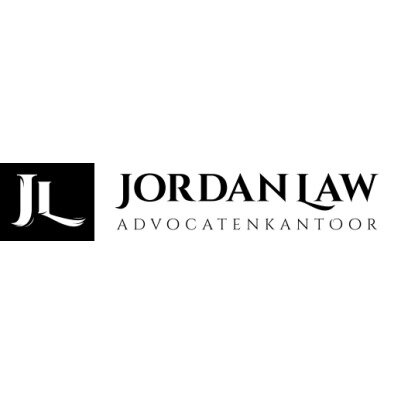Best Faith-Based Law Lawyers in Netherlands
Share your needs with us, get contacted by law firms.
Free. Takes 2 min.
Or refine your search by selecting a city:
List of the best lawyers in Netherlands
About Faith-Based Law in Netherlands
Faith-Based Law in the Netherlands encompasses a blend of national legal norms and religious principles, catering to the needs of religious communities. The Dutch legal system respects the freedom of religion, allowing religious groups to practice their own customs, provided they do not conflict with Dutch civil law. This legal landscape accommodates various religious traditions, enabling faith-based communities to manage internal affairs such as marriage, education, and personal status issues according to their religious doctrines.
Why You May Need a Lawyer
Engaging a lawyer with expertise in Faith-Based Law might be necessary when facing situations where religious customs intersect with national law. Common scenarios include:
- Disputes arising from religious marriages or divorces requiring secular legal solutions.
- Conflicts over religious educational rights or homeschooling.
- Resolving issues related to inheritance and wills which may be guided by religious guidelines.
- Employment disputes involving religious discrimination or accommodations.
- Assisting religious organizations in navigating the legal requirements for establishment and operation.
Local Laws Overview
In the Netherlands, the legal framework ensures religious freedom and equality. Key aspects relevant to Faith-Based Law include:
- Grondwet voor het Koninkrijk der Nederlanden (Dutch Constitution): Guarantees freedom of religion and philosophy of life.
- Civil Code: Governs matters of personal status, allowing individuals to practice religious rites as long as they comply with civil requirements.
- Non-Discrimination and Employment Laws: Prohibit discrimination on religious grounds while mandating reasonable accommodations in workplaces.
- Education Laws: Permit religious schools to operate under specific state-regulated norms, maintaining a balance between religious teachings and general educational standards.
Frequently Asked Questions
What is the legal standing of religious marriages in the Netherlands?
In the Netherlands, a religious marriage does not have legal status unless a civil marriage is also conducted. The civil marriage must precede any religious ceremony to ensure it is recognized by law.
Can faith-based schools set their own curriculum?
Yes, faith-based schools in the Netherlands can design their curricula, but they must still meet state educational requirements to ensure a standard level of education.
How can religious organizations gain legal recognition?
Religious organizations can gain legal recognition by registering as non-profit entities under the Dutch Civil Code. They must adhere to rules concerning transparency and governance to maintain their status.
Are there any special inheritance laws for faith-based communities?
While Dutch law governs inheritance, individuals can draft wills compliant with their religious practices as long as they meet the legal standards of Dutch inheritance laws.
How does the Netherlands handle religious discrimination in the workplace?
The Netherlands has stringent laws against discrimination, and employers are required to accommodate religious practices reasonably, such as prayer times and religious attire.
Are dietary laws recognized in schools and workplaces?
Yes, many schools and workplaces are open to accommodating dietary restrictions due to religious reasons, though this is subject to practical considerations and mutual agreement.
How do civil courts handle disputes involving religious law?
Civil courts consider religious laws and customs during proceedings related to faith-based disputes but ultimately adhere to the secular legal framework to resolve the matter.
Is homeschooling allowed for religious reasons?
Homeschooling is permitted under strict conditions, including approval from local authorities, to ensure children receive education comparable to state curriculum standards.
Can religious symbols be worn freely in public spaces?
Individuals in the Netherlands are generally free to wear religious symbols in public, reflecting the country's strong values of freedom of expression and belief.
What support is available for constructing places of worship?
Religious communities seeking to build places of worship may encounter municipal regulations regarding land use and construction but can apply for permits and support through local councils.
Additional Resources
For further guidance on Faith-Based Law in the Netherlands, consider exploring the following resources:
- The Dutch Ministry of Justice and Security for official guidelines and updates.
- Local ombudsmen or legal clinics offering pro bono consultancy.
- Faith-based community organizations providing legal assistance and advocacy.
- Council of Europe and European Union frameworks on freedom of religion and non-discrimination.
Next Steps
If you need legal assistance in Faith-Based Law, consider these steps:
- Identify reputable law firms or legal practitioners specializing in this area.
- Schedule consultations to understand how local and faith-based laws impact your specific situation.
- Gather any relevant documentation or evidence related to your issue beforehand.
- Discuss potential legal implications and strategies with your lawyer to align on expectations and outcomes.
Understanding both the secular and faith-based legal frameworks will empower you to navigate your situations effectively, ensuring your rights are protected within the bounds of Dutch law.
Lawzana helps you find the best lawyers and law firms in Netherlands through a curated and pre-screened list of qualified legal professionals. Our platform offers rankings and detailed profiles of attorneys and law firms, allowing you to compare based on practice areas, including Faith-Based Law, experience, and client feedback.
Each profile includes a description of the firm's areas of practice, client reviews, team members and partners, year of establishment, spoken languages, office locations, contact information, social media presence, and any published articles or resources. Most firms on our platform speak English and are experienced in both local and international legal matters.
Get a quote from top-rated law firms in Netherlands — quickly, securely, and without unnecessary hassle.
Disclaimer:
The information provided on this page is for general informational purposes only and does not constitute legal advice. While we strive to ensure the accuracy and relevance of the content, legal information may change over time, and interpretations of the law can vary. You should always consult with a qualified legal professional for advice specific to your situation.
We disclaim all liability for actions taken or not taken based on the content of this page. If you believe any information is incorrect or outdated, please contact us, and we will review and update it where appropriate.
Browse faith-based law law firms by city in Netherlands
Refine your search by selecting a city.















